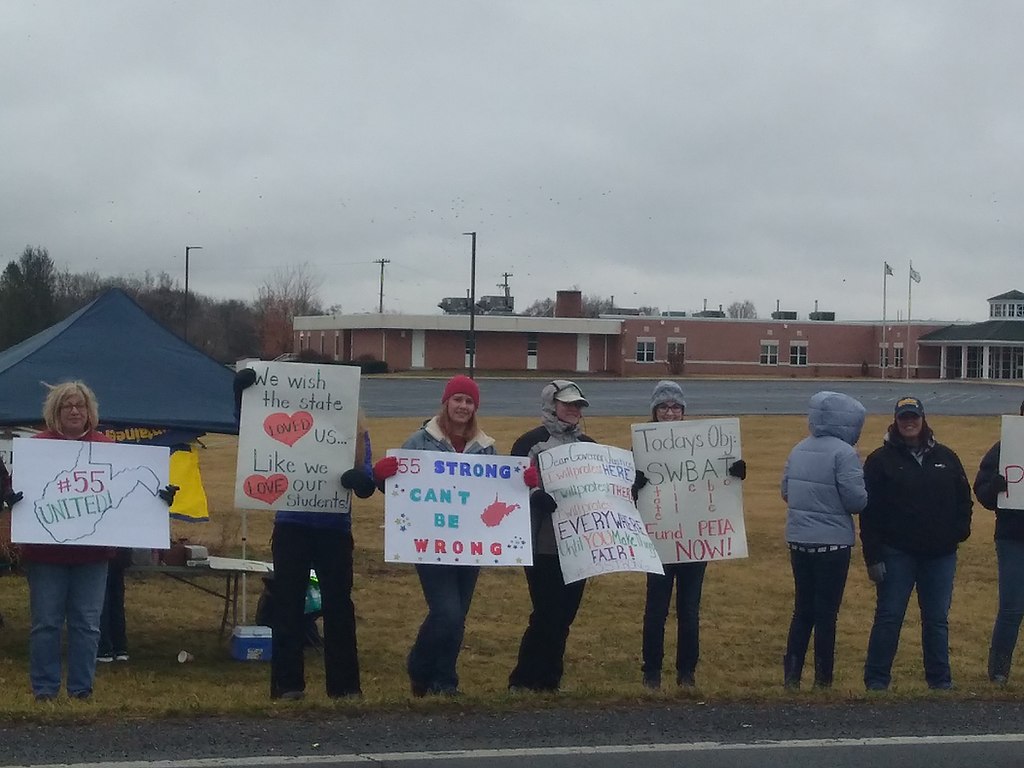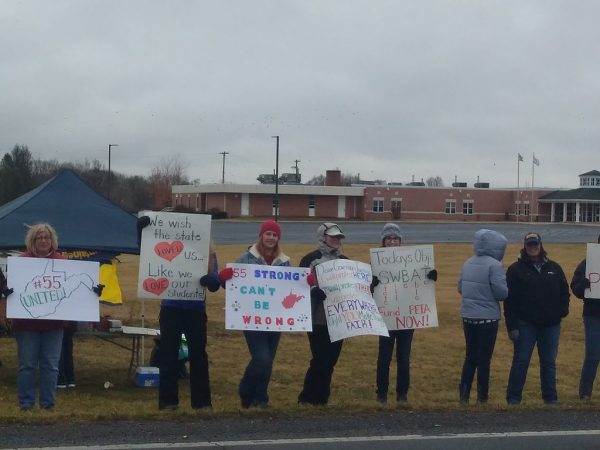Abortion rights, women of color, and LGBTQIA+ people are under attack. Pledge to join us in fighting for gender justice.
What the Teacher Strikes Mean for Workers’ Rights and Public Justice


In states across the country, public school teachers are sitting in, walking out, striking, and taking bold and unapologetic action in an historic effort to force state lawmakers to not only raise teacher pay but adequately fund public education instead of doling out tax breaks to corporations. We are deeply inspired by this massive demonstration of power from working people – the vast majority of whom are women – especially in red states and in particular at the very moment that public-sector unions are facing corporate-backed attacks that have gone all the way to the Supreme Court. That’s why beginning on this May Day, this International Workers Day, we are taking a deep dive into this moment, through a blog series exploring and documenting the issues that are catalyzing hundreds of thousands of people to action.
These actions are deeply significant for reasons that cut across all of our work at the National Women’s Law Center. Teachers are public service workers, they are overwhelmingly women, they are union members, they are parents, they are community members. These teachers are putting their bodies and their livelihoods on the line, not just as working people, often serving poor communities and communities of color, but as parents whose children suffer from underfunded educations, as concerned citizens who are watching their elected officials give tax breaks to corporations (often at the expense of needed public services, as well as clean air and clean water) as patients who are watching their healthcare costs skyrocket, and as women who know that personally and professionally, they are worth more. Teachers are out in the streets because like all women, they do not live single issue lives. Instead, they are coming together for the common good, to roll back the austerity forced on their livelihoods and communities.
When seen through a worker justice lens, these teachers are public service workers, many of whom are members of public sector unions, which have been under an all-out assault from the right wing. A case currently pending before the Supreme Court, Janus v AFSCME, threatens to fundamentally upend the operations of public service unions, by prohibiting them from collecting dues from everyone they are legally obligated to represent. Both in states like West Virginia, where unions are already essentially forced to operate in this way, and in states where legal changes to the operations of public sector unions will mark a huge shift, these strikes are a lesson in what happens when anti-worker and pro-corporate sentiment results in a breakdown of traditional industrial democracy – bargaining between workers and employers – and a breakdown of the social safety net. The demands of working people do not just go away. When there is no clear path forward, working women will make their own way, laying the groundwork for a new vision of educational equity, workplace fairness, and public justice.





